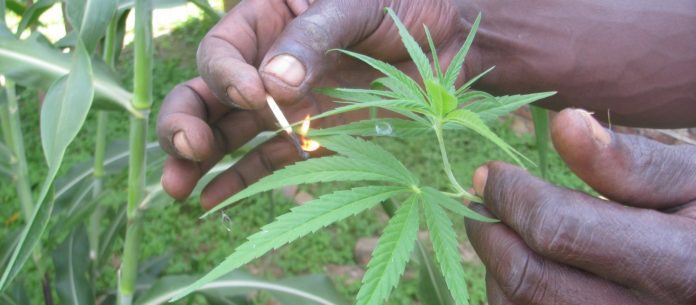By CNN
You may love smoking weed, but it does not love your heart, according to the American Heart Association’s new scientific statement on marijuana.
“The American Heart Association recommends that people not smoke or vape any substance, including cannabis products, because of the potential harm to the heart, lungs and blood vessels,” said Dr. Rose Marie Robertson, the deputy chief science and medical officer for the American Heart Association, in a statement.
The new scientific statement, published Wednesday in the AHA journal Circulation, examined existing research on the connection between cannabis and the heart.
The statement found using weed has “the potential to interfere with prescribed medications” as well as “trigger cardiovascular conditions or events, such as heart attacks and strokes,” said clinical pharmacologist Robert Page II, who chaired the medical writing group for the statement.
Anyone planning to use marijuana should discuss possible risks with their health professional first, said Page, who is a professor in the department of clinical pharmacy and physical medicine/rehabilitation at the University of Colorado Skaggs School of Pharmacy and Pharmaceutical Sciences in Aurora, Colorado.
“If people choose to use cannabis for its medicinal or recreational effects, the oral and topical forms, for which doses can be measured, may reduce some of the potential harms,” Page said in a statement.
“It is also vitally important that people only use legal cannabis products because there are no controls on the quality or the contents of cannabis products sold on the street,” he added.
Heart complications
Some of the studies analyzed by the medical group found heart rhythm abnormalities, such as tachycardia and atrial fibrillation, could occur within the hour after weed containing THC is smoked. THC, or tetrahydrocannabinol, is the psychoactive substance within marijuana that creates a “high.”
Tetrahydrocannabinol can also cause a faster heart rate, increase the heart’s need for oxygen, disrupt the walls of arteries and contribute to higher blood pressure while prone, according to other studies.
“Cannabis smoke contains components similar to tobacco smoke,” Page said, and studies show tobacco-like increases in carbon monoxide and tar in a weed smoker’s blood after smoking marijuana, regardless of the THC content.
Chest pain, heart attacks, heart rhythm disturbances and other serious heart conditions are associated with both tobacco and marijuana carbon monoxide intoxication, the statement said.
For anyone with existing heart disease, risks go up. Smoking weed has triggered heart attacks, a higher risk of strokes and heart failure in people with underlying heart disease, studies show.
In comparison, CBD, or cannabidiol, one of the other 80 chemicals in cannabis, does not give the “high” typically associated with THC. Nor does it appear to cause harm to the heart.




